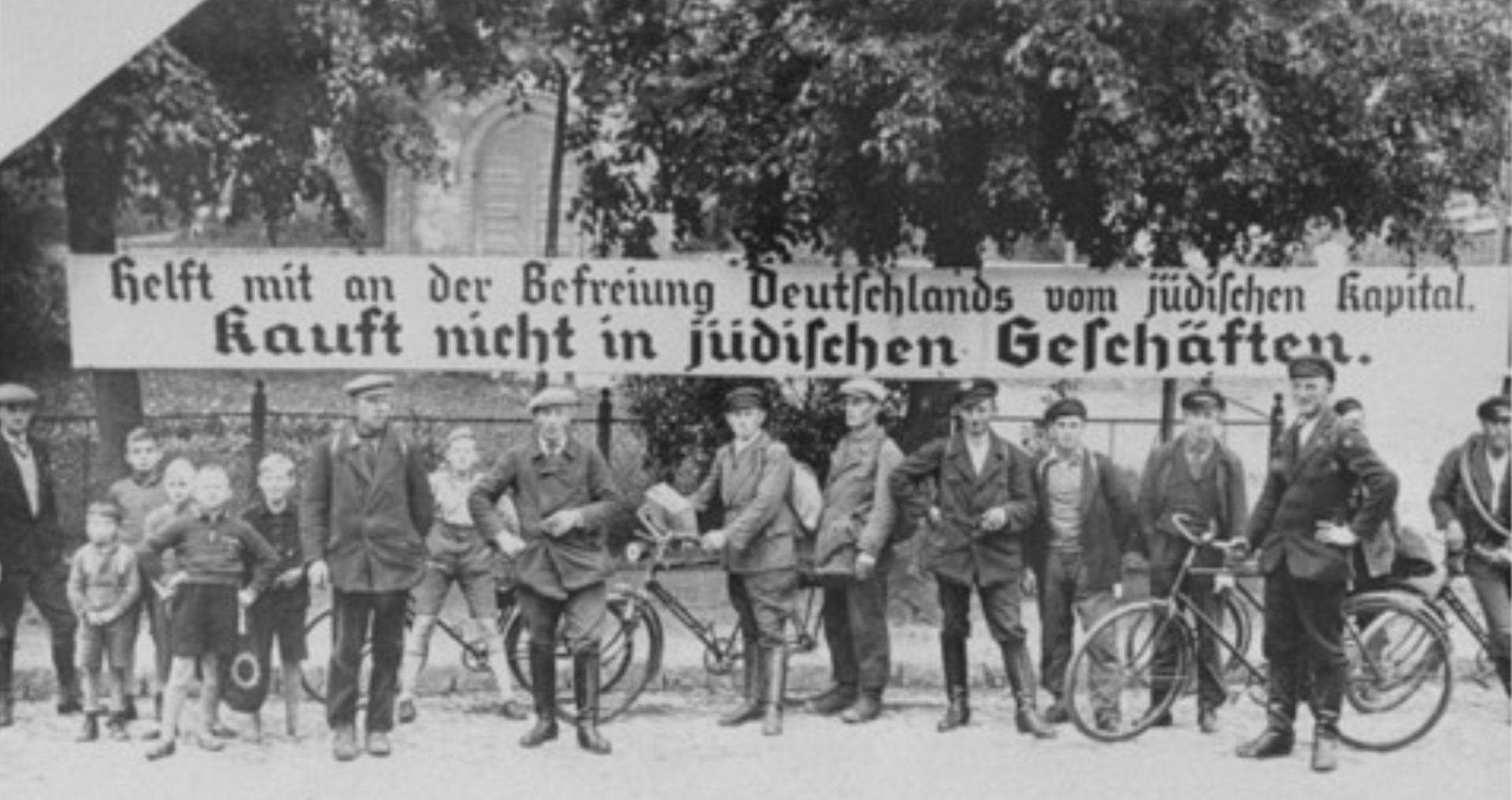Holocaust memorial day takes place on 27 January each year. The European Parliament marks the day during the week in which 27th falls. These thoughts from our office lest we forget.
Photo: Sign used during the anti-Jewish boycott: "Help liberate Germany from Jewish capital. Don't buy in Jewish stores." Germany, 1933.
John Howarth with Fiona Thomas
Words have always had power. We only have to look at today’s political events to see how much words, or even 140 characters, matter.
The power of words is never clearer than when looking at the Nazi regime.
The Holocaust did not start with the gas chambers. It started with words: hate speech, anti-Semitic tropes, ‘fake news’ and the normalisation of lies. Words and images were pivotal in Hitler’s assumption of power. The campaigns of the NSDAP, from Mein Kampf in 1925, scapegoated the Jewish population, and any people who the regime deemed ‘undesirable’ creating the climate in which violence, coercion and intimidation were normalised. Having seized power in 1933, The Reich Ministry of Public Enlightenment and Propaganda churned material that changed German political culture. This prepare the ground for the regime to ‘legalise’ the persecution of ‘opponents’ of the NSDAP.
The Nuremberg Laws were a series of anti-Semitic laws introduced at the 1935 Nuremberg Rally. These forbade marriages and extra-marital intercourse between Jews and other Germans, and stated that only those of German or related blood were eligible to be citizens of the Reich, with the remainder classed as state subjects without citizenship rights. The ‘final solution’ - the euphemism for the systematic murder of the Jewish population, cloaked in the lies and denial of ‘resettlement’ would never have been possible without the systematic cultivation of anti-Semitic hate.
The Soviet Army liberated the Auschwitz-Birkenau death camp on the 27th January 1945. In five years of industrialised murder, it had consumed more than 1.1 million ‘undesirable’ people. What started with words ended with the murder of two thirds of the Jewish population of Europe - one in six of whom died at Auschwitz.
However, words can also be a force for good.
On the sixtieth anniversary of the liberation of Auschwitz-Birkenau concentration camp in 2005 the UN resolved to create an International Day of Commemoration in memory of the victims of the Holocaust.
This six part resolution:
- urged Member States to develop educational programmes that will inculcate future generations with the lessons of the Holocaust in order to help prevent future acts of genocide
- rejected any denial of the Holocaust as an historical event - either in full or part
- commended those States which have actively engaged in preserving those sites that served as Nazi death camps, concentration camps, forced labour camps and prisons during the Holocaust
- condemned without reserve all manifestations of religious intolerance, incitement, harassment or violence against persons or communities based on ethnic origin or religious belief, wherever they occur, and;
- requested the Secretary-General to establish a programme of outreach on the subject of the ‘Holocaust and the United Nations’
Through this resolution, the UN works to ensure that the world will never forget the Holocaust. Words keep memories and histories alive; we use ours to commemorate the victims of the Holocaust, to tell future generations of its horrors and to understand that words of hate are never ‘just words’.



